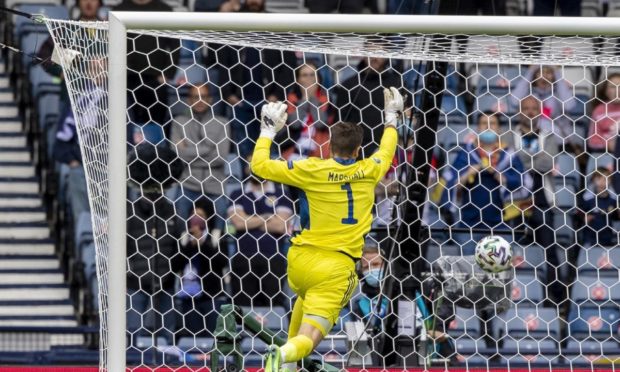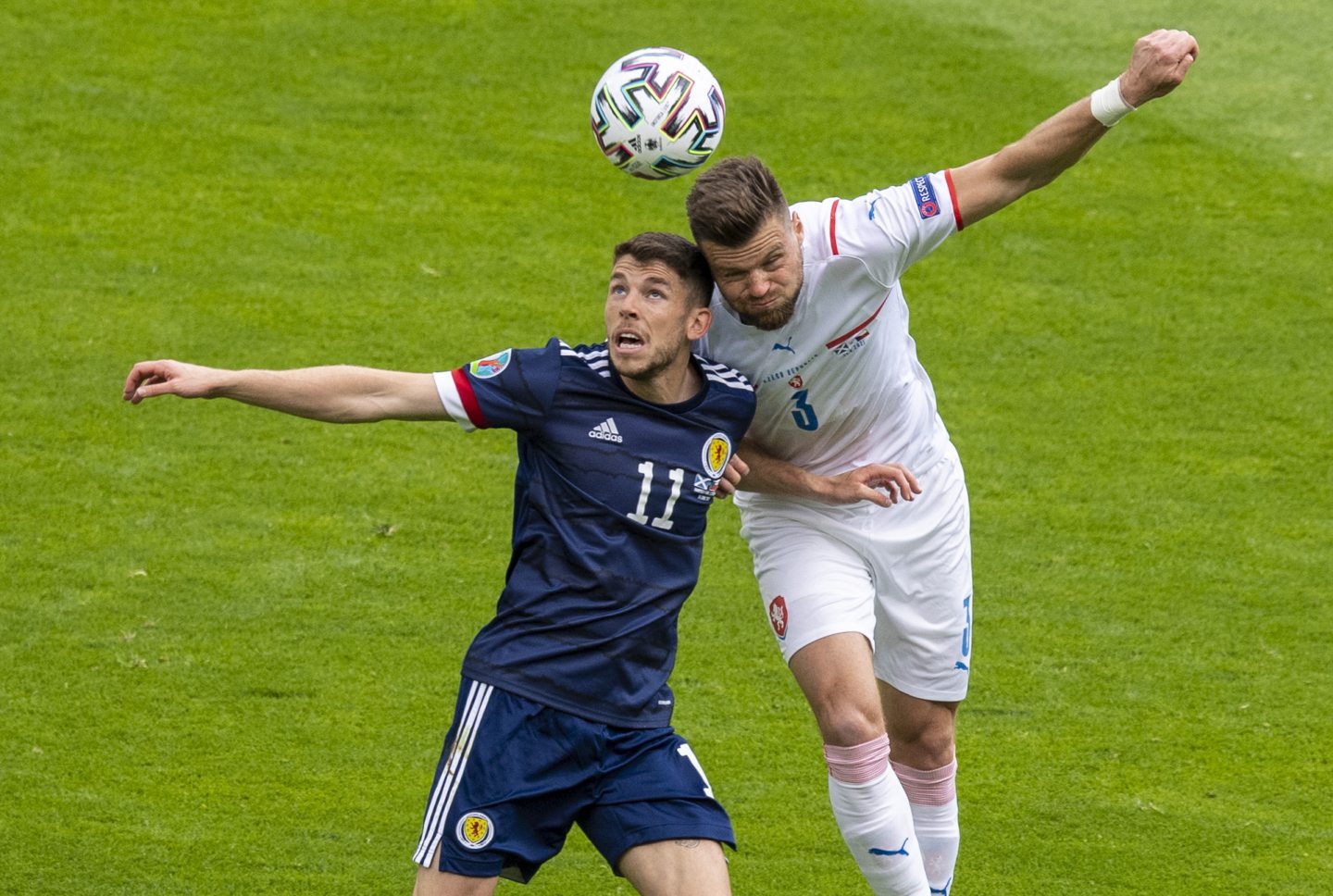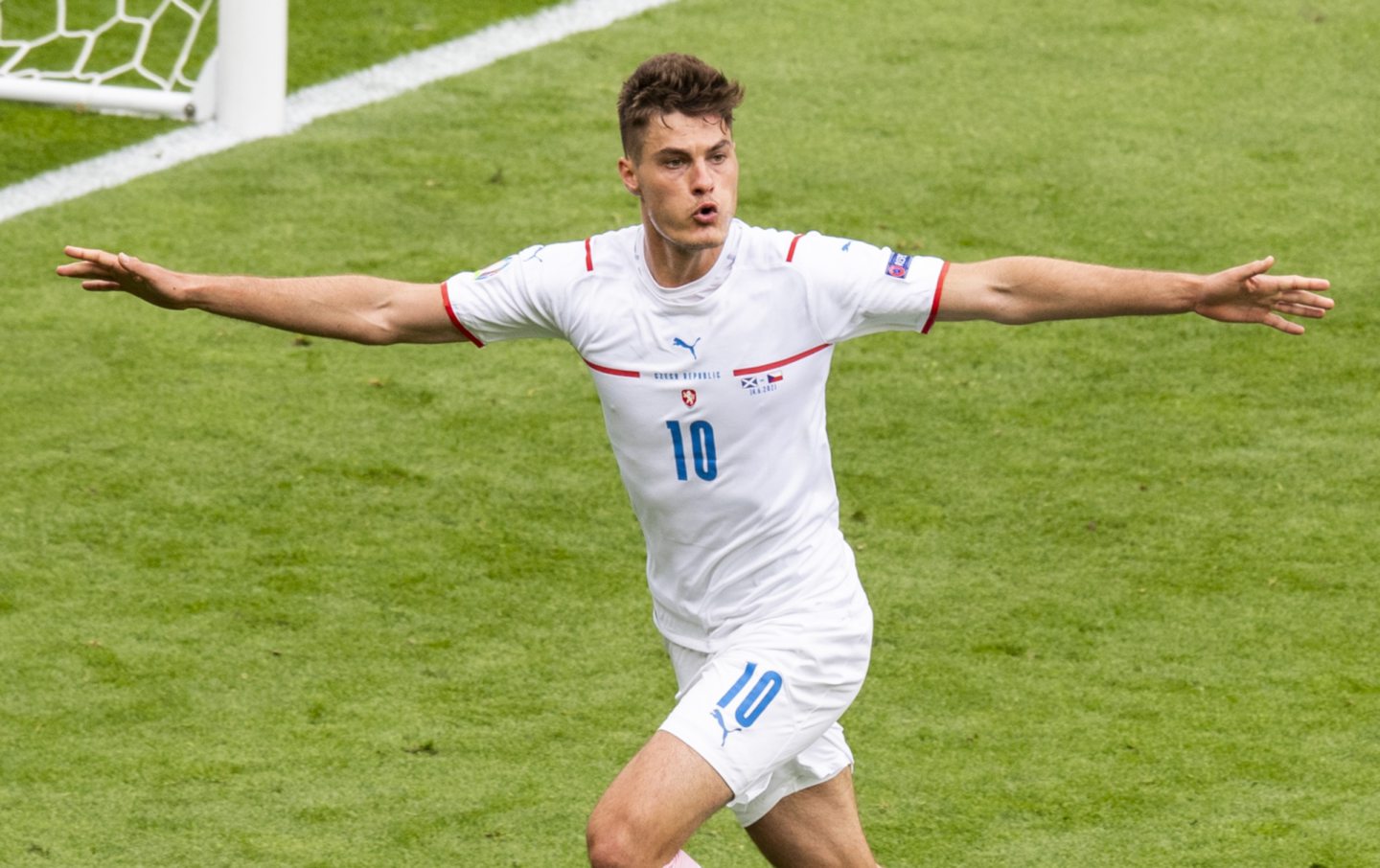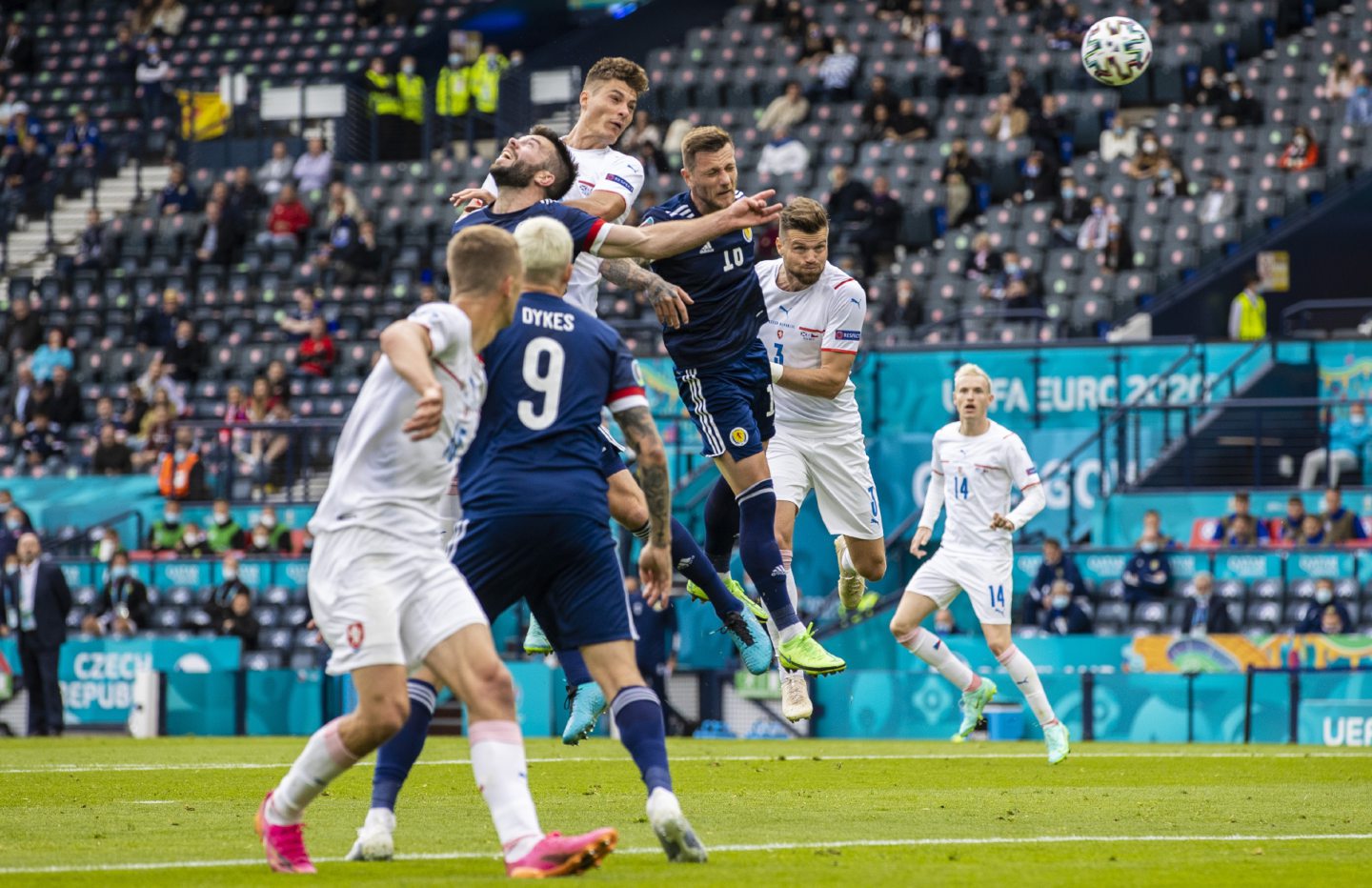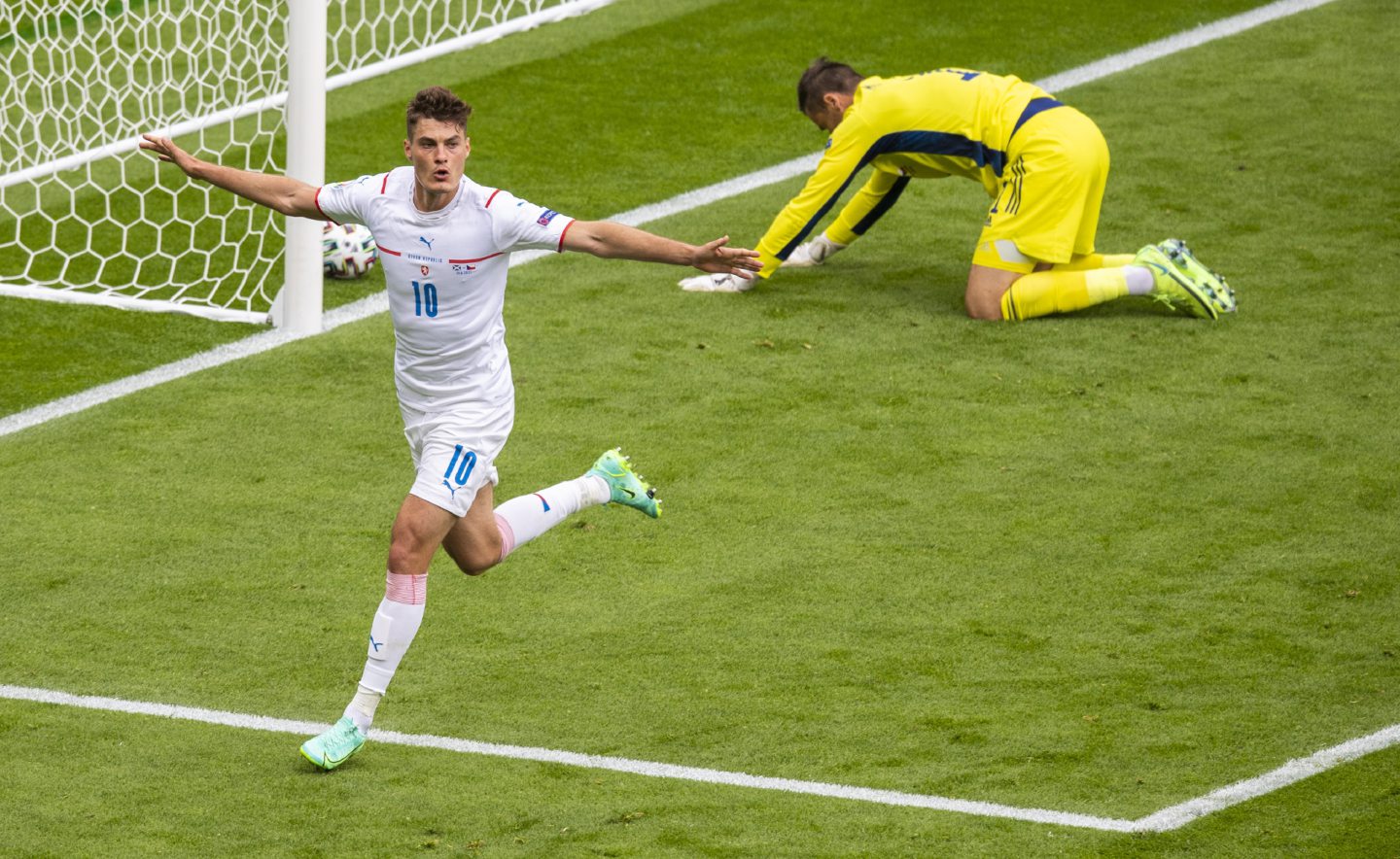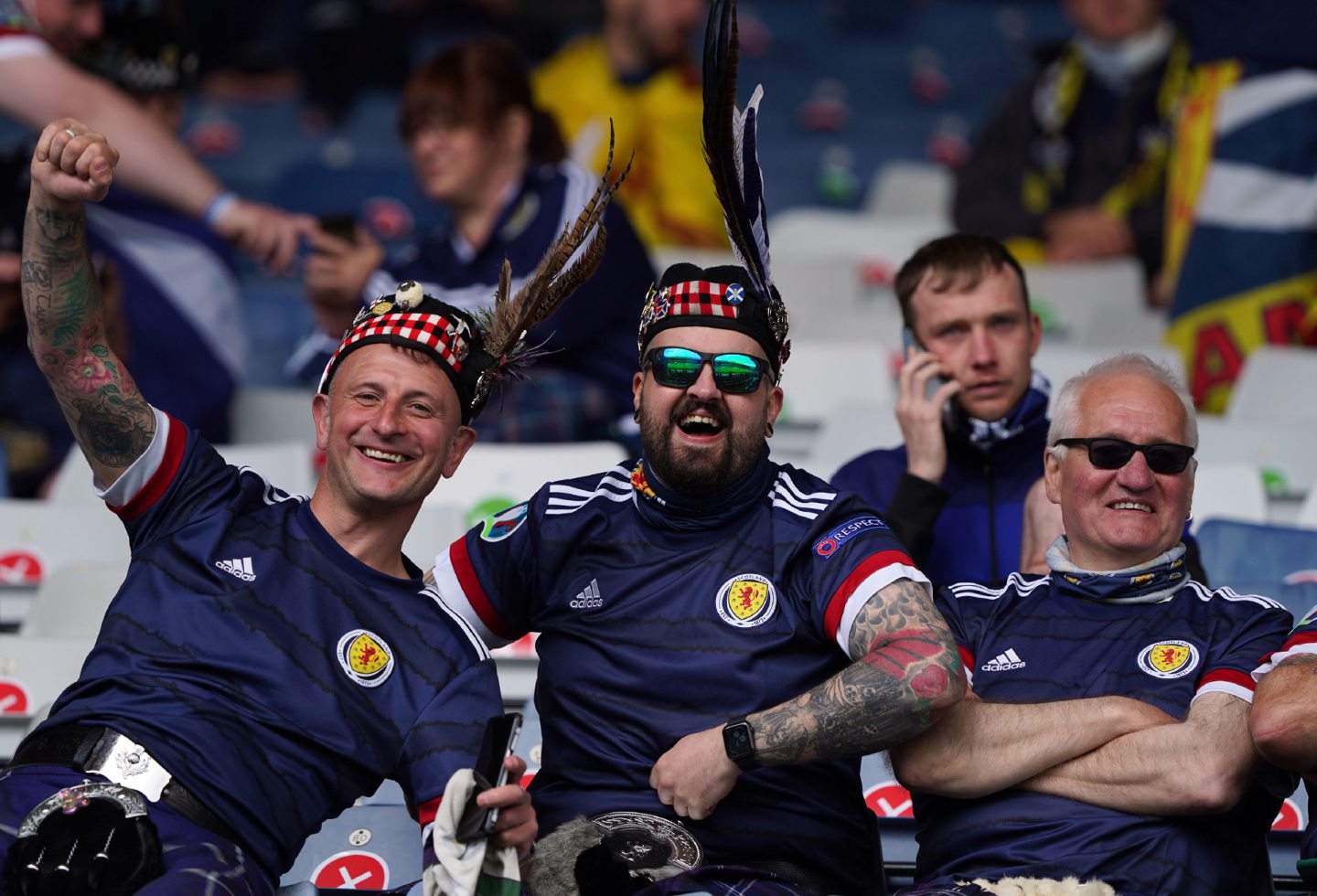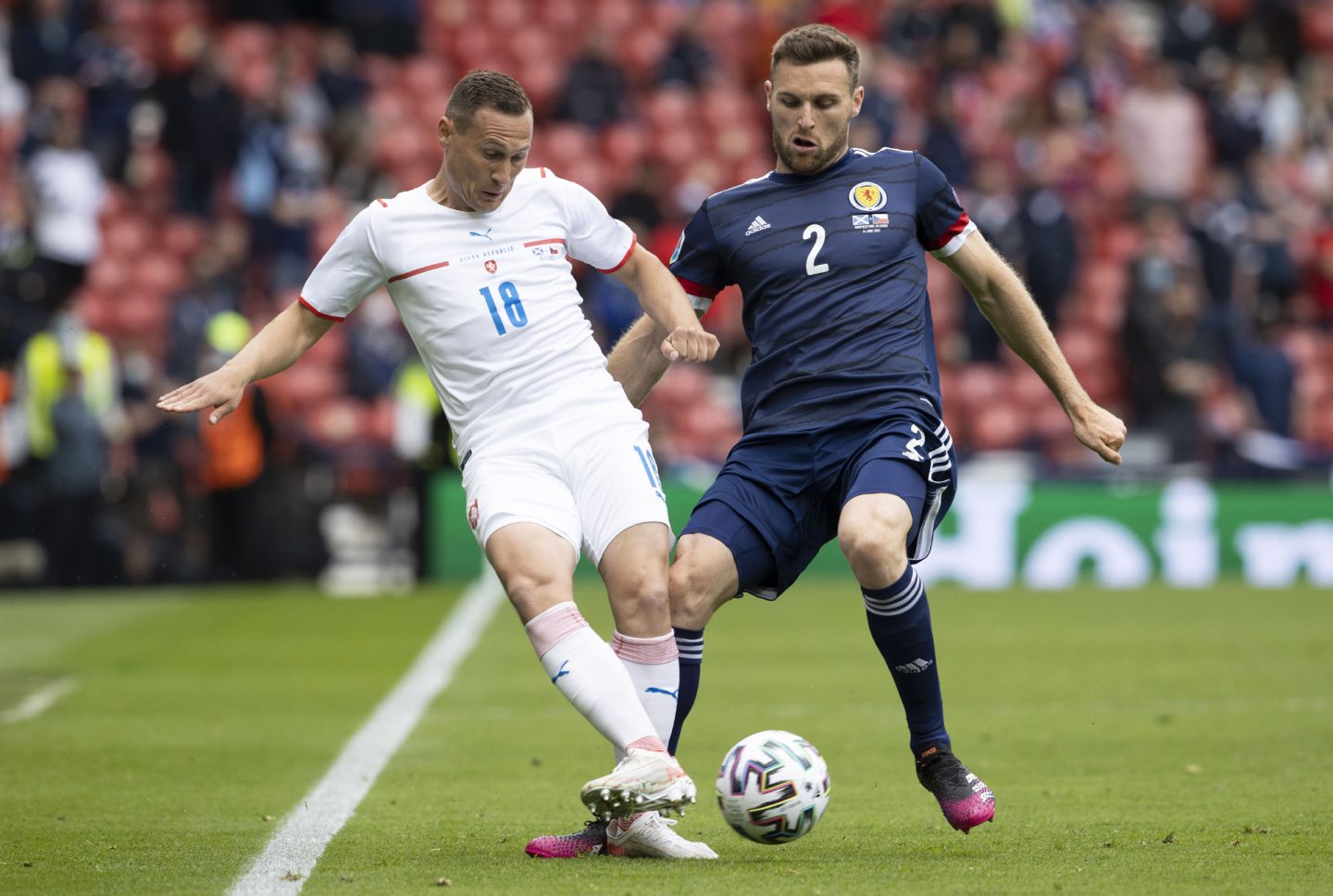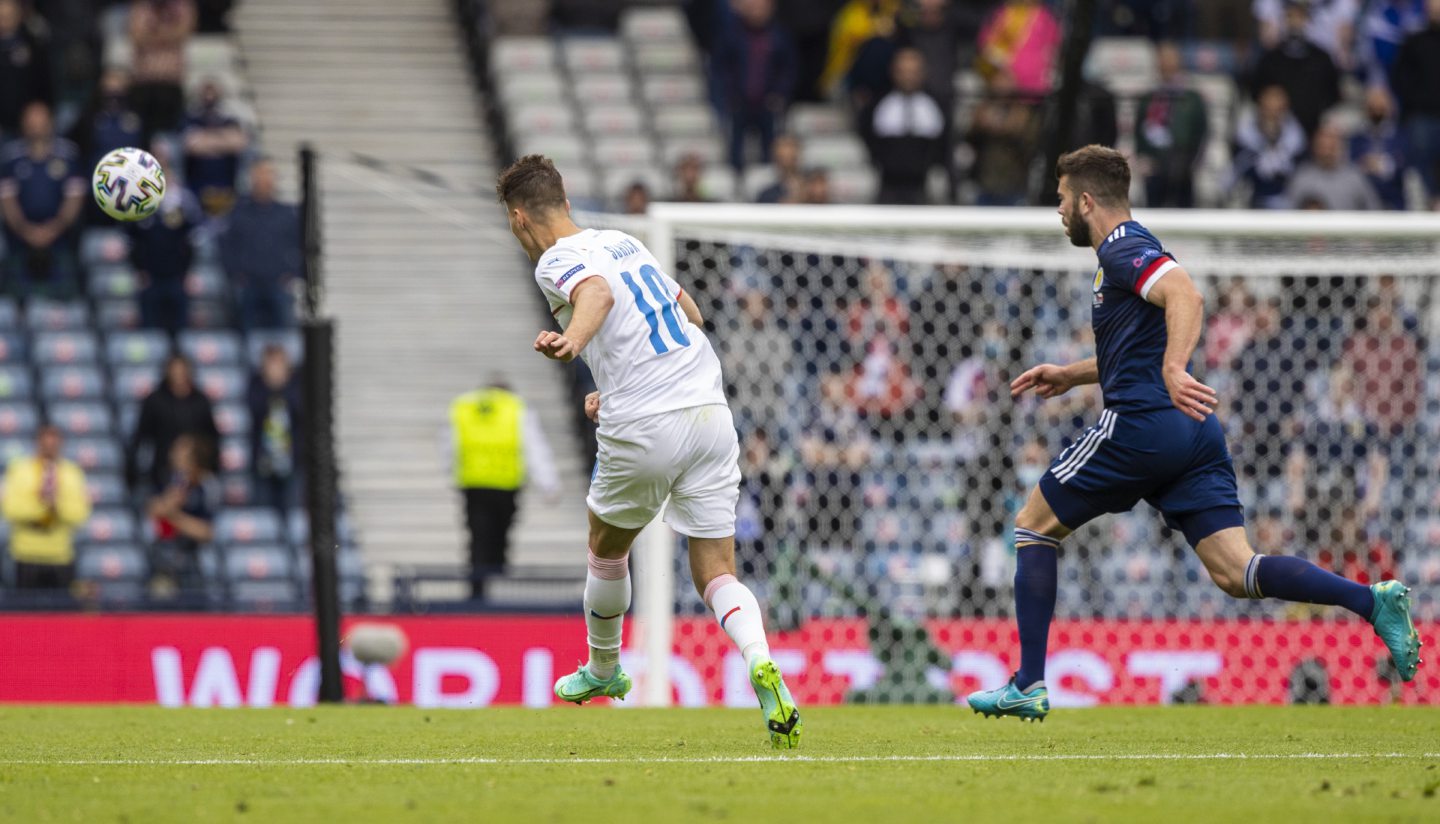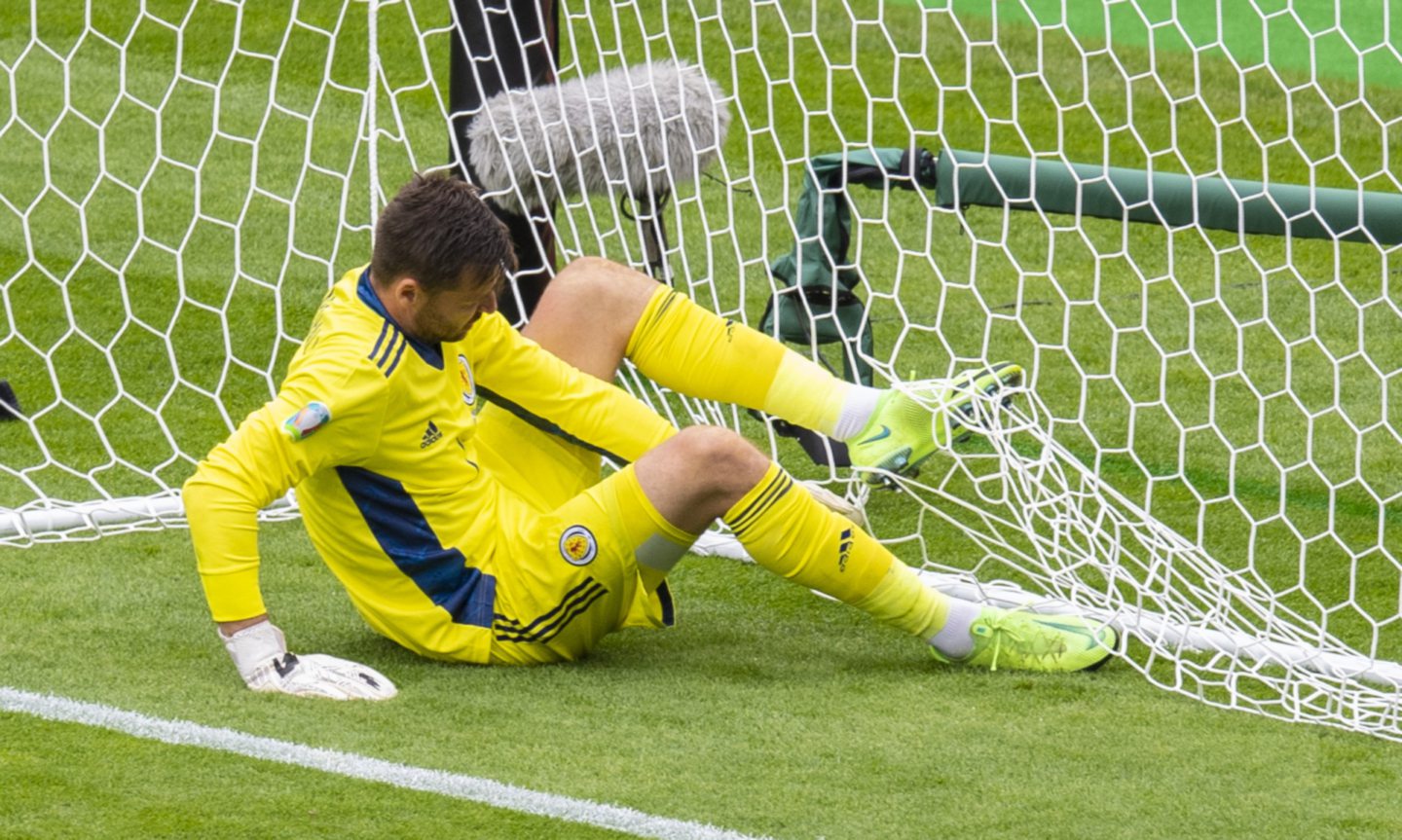After 23 years of waiting Scotland fans quickly reacquainted themselves with a familiar, and unwanted, feeling – crushing disappointment at a major finals.
All the factors that have brought heartache for the Tartan Army in 10 previous major tournaments were on show against the Czech Republic.
An inspired opposition keeper, misfortune, missed chances, hitting the woodwork and inexplicable self implosion to gift a goal.
The cumulative effect was all so depressingly familiar for supporters of a certain vintage.
For that lost generation within the Tartan Army who had not experienced Scotland playing at the finals of a major tournament it was an immediate introduction to the pain of supporting their country.
A bitter blow that the positive build up could not have predicted – however it is far from over in Euro 2020 for the Scots as three points was enough for both Northern Ireland and eventual winners Portugal to qualify from their groups in 2016.
However the Scots have a mountain of Everest proportions to climb to get that win which is the absolute minimum requirement with games against England and 2018 World Cup finalists Croatia looming.
Scotland put everything into this game. Their commitment, work rate and passion could not be questioned.
However at this level you need to take chances and not gift goals.
Scotland were guilty of both and it cost them.
Scotland had enough chances to get at least a point from this Group D opener but their cutting edge in attack deserted them when it mattered most.
For years that lack of goal threat had been Scotland’s Achilles’ heel but with Lyndon Dykes and Che Adams in the squad that problem looked to have been fixed.
However that bluntness in front of goal returned at the worst possible time.
Chance after chance was created, and either spurned, deflected or saved.
You get the sense Scotland could still be playing deep into the evening and still wouldn’t score.
It was one of those frustrating days – which have become so familiar for the Scots at a finals.
The day began with a set-back when Kieran Tierney was ruled out with a calf injury.
Skipper Andy Robertson and Tierney combine for one of the strongest left sides in the tournament.
With the loss of Tierney that flank was punctured and Tierney’s propulsive runs from deep could have been Scotland’s secret weapon at Euro 2020.
They could still be as Clarke hopes he will be fit to face England at Wembley on Friday.
Jack Hendry was taken in as replacement for Tierney and went in at right-centre back with Grant Hanley central and Liam Cooper in at left centre-back.
Leeds United captain Cooper was defensively resolute and produced key challenges but that propulsive energy of Tierney was a miss.
For all Robertson’s positive play he was caught out for the opener when he was left exposed in no man’s land as a through ball found Tomas Vladimir Coufal breaking down the over-lap past the Scots’ skipper.
Coufal’s cross found Patrik Schick who rose between Hanley and Cooper to head home.
You sense had Tierney been in at left-centre back such is his understanding with Robertson that gaping hole would not have opened up on the flank.
In that moment for the opener the impressive play of Hanley and Cooper evaporated when the centre-backs let Schick get in between them to score.
The Scots for long periods also became over-reliant on the deliveries from the Liverpool full-back on the left and it became too one-dimensional.
Tierney’s absence wasn’t the only shock as Stuart Armstrong was pitched in ahead of Callum McGregor and Ryan Christie was given the nod as an attacking foil for Lyndon Dykes ahead of Che Adams.
That lasted 45 minutes until Clarke, with the Scots trailing 1-0, replaced Christie with Adams at half-time.
It was harsh on Christie who had put in a power of work in support of Dykes who had given centre-backs Ondrej Celustka and Tomas Kalas a bruising time time with his running and physicality.
However attackers are only as good as the service they receive and the Premier League midfield three of Scott McTominay (Manchester United), Stuart Armstrong (Southampton) and John McGinn (Aston Villa) were not providing the spark nor service required in the opening 45 minutes.
Scotland needed to show more bravery in the centre of the park by taking chances, getting on the ball and doing something with it.
It was a brave move from Clarke to replace Christie, a player with the ability to find that game changing pass and touch of genius, to take on Adams.
That introduction was a catalyst as Scotland hit the bar through Jack Hendry and then the impressive Czech keeper had to produce an acrobatic save to prevent a certain goal to claw away a deflected shot.
Unfortunately Scotland reverted to the type that has haunted the Tartan Army for decades, imploding when they were on the up as they were left woefully exposed at the back.
A weak shot from Hendry broke to Schick who couldn’t believe his luck when he was unmarked.
His luck got even better when he looked up and saw keeper David Marshall was 35 yards out of his goal.
There was no luck however about Schick’s sublime finish as he shaped a world class dipping shot from just inside the Scots half that dipped in at the near corner.
When a keeper is that far out of his goal he better be able to get back quickly – but Marshall couldn’t.
The burning question is why was Marshall so far out of his goal?
Scotland do not play a system that requires that.
The hero of the penalty shoot-out against Serbia in Belgrade Marshall made a bad judgement call and it cost Scotland.
Chances came and went for the Scots after that.
It will take a monumental effort if this Scotland squad is to make history by becoming the first to qualify from a group at a major tournament.
Still the Tartan Army hope.
They say its the hope that kills you.
